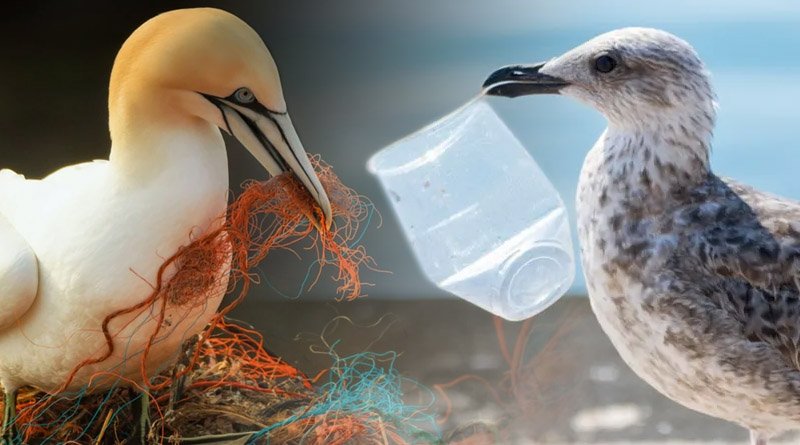The study demonstrates that consuming plastic can seriously harm these birds’ digestive systems because it is the first time stomach tissue has been examined in this manner.

Seabirds that consume plastic have a new disease called plasticosis, according to scientists. Approximately 8 million pieces of plastic are dumped into the oceans every day. A large portion of it ends up in seabirds’ stomachs.
These birds have digestive tract scarring, a condition known as “plasticosis” by researchers at the Natural History Museum in London. Dr. Alex Bond, co-author of a study on the pollution, cautions that this plastic-induced illness has significant negative effects on growth and survival.
Even though these birds may appear to be in good health from the outside, according to him, they are not. This study demonstrates that consuming plastic can seriously harm these birds’ digestive systems because it is the first time stomach tissue has been examined in this manner.
Destructive plastic waste left by humans has been spread across the entire planet and will take millions of years to decompose. About 6 billion of the 10 billion tonnes of plastic ever produced are either in landfills or have a negative environmental impact.
The guts of more than 90% of seabirds worldwide contain plastic. Researchers from the Natural History Museum examined flesh-footed shearwater birds from Australia’s Lord Howe Island in collaboration with other scientists.
The island is located 600 kilometres off the Australian coast. It was discovered that the digestive tracts of birds of all ages were scarred from consuming plastic. The new fibrotic disease, which can harm the tubular glands in the first part of the seabirds stomach and impair digestion, was given the name plasticosis by researchers.
The researchers caution that although plasticosis is only currently understood to affect the digestive system, it may also potentially affect other body organs, such as the lungs.
Furthermore, ingesting plastic has serious, far-reaching effects that we are only now fully documenting and understanding. Some of the worst effects of plastics can be lessened with recycling. The Organisation for Economic Co-operation and Development (OECD) found that only 9% of plastic is successfully recycled in a report from 2022.
The best course of action for individuals is to avoid using plastic at all costs. This entails avoiding plastic water bottles and choosing reusable storage options.
Governments must play a significant role in this transition. For instance, the EU has outlawed single-use plastic straws, balloon sticks, cotton buds, plates, and cutlery. 175 nations decided to create a binding agreement last year to stop plastic pollution by 2024. This will cover the entire plastic lifecycle, including its creation, use, and disposal.
